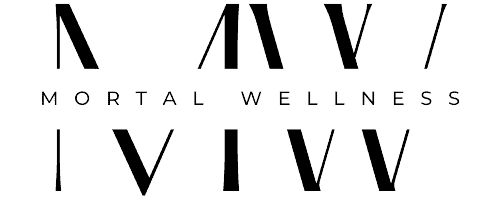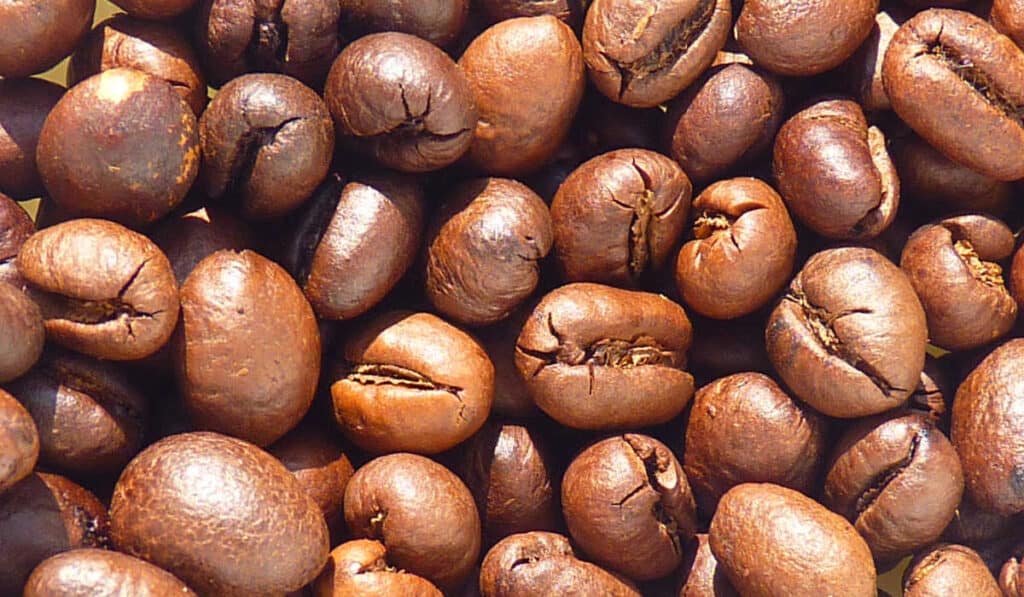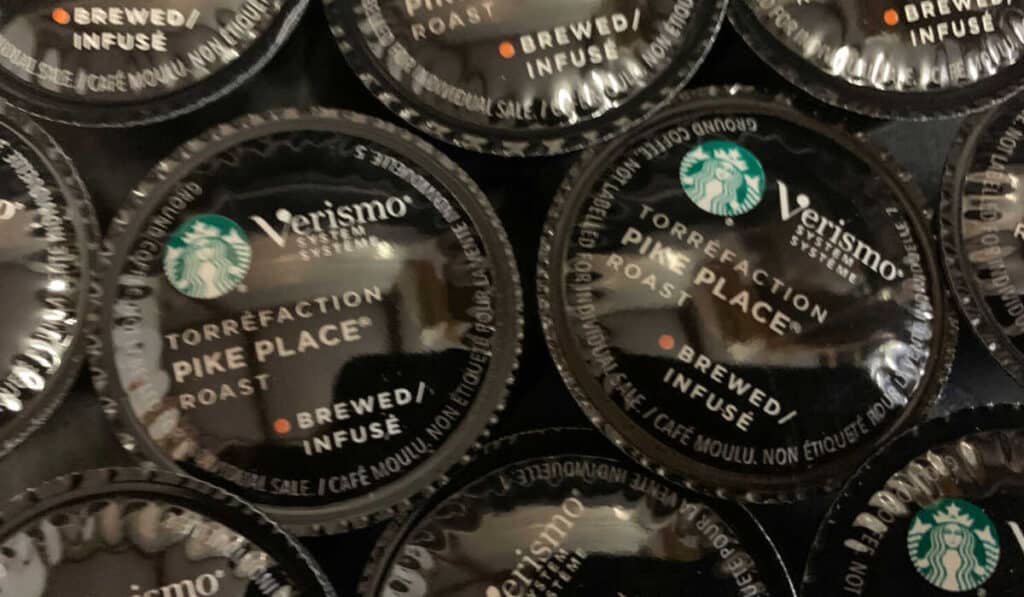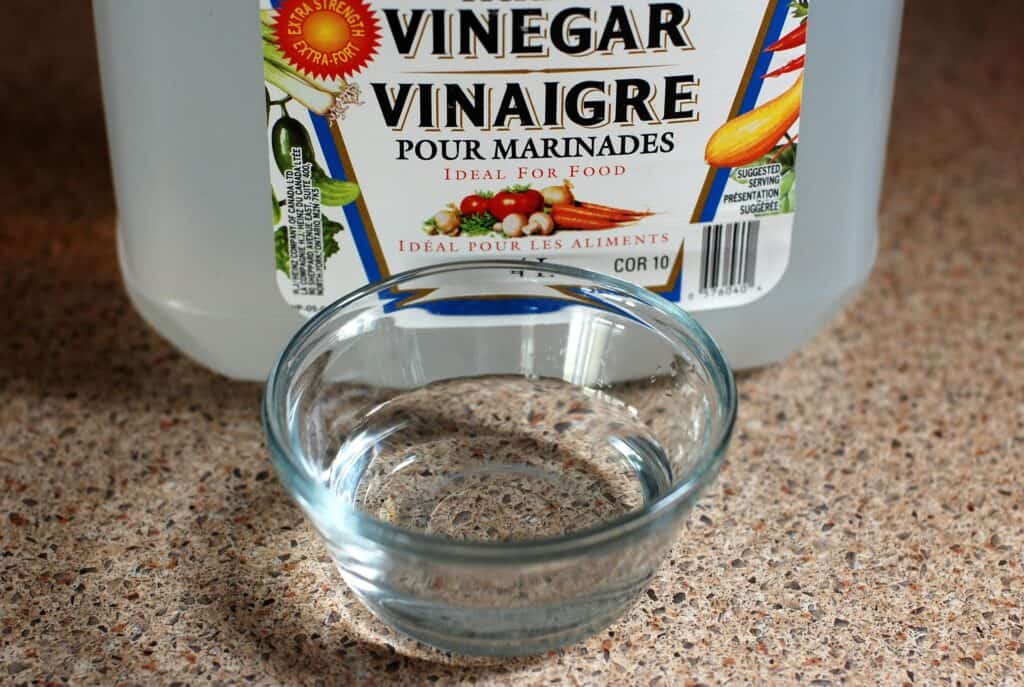As an Amazon Associate I earn from qualifying purchases.
If you’re visiting this page, odds are you’ve tried detoxing from caffeine before.
When I first became aware of the negative effect that caffeine was having on my body, I tried to quit cold turkey. That was when I found out that I was a noodle of a man… or at least, I thought so at the time. I thought very highly of my willpower but ended up sucking down a Rockstar later that day just to make it to the end of my work.
The reality is, knowing how to quit caffeine isn’t a secret. You just stop drinking it.
However, the actual process of stopping and detoxing can really suck.
If you have been consistently drinking caffeinated soda or coffee for years, prepare for a physical and mental shock if you try to quit without any supplementation or tapering program.
Should I Quit Drinking Coffee?

There could be any number of reasons that you may want to detox from caffeine. The first time I decided that I needed to make a change was when I was drinking 3-4 energy drinks a day, and feeling no increase in energy from them.
I didn’t feel any real negative effects from the caffeine, but I could see myself needing more and more and knew I should probably return to square one.
A few years later, while I was a full-time student, working 50+ hours a week, and had a new baby, caffeine took a much heavier toll on me.
With much higher stress levels already, caffeine wreaked havoc on my mind and left me anxious – but without energy. Both times I was able to regulate my consumption by going through a short detox cycle. In fact, I just finished a full year without caffeine to see how long it takes for things to fully improve (read that story here)
5 Reason People Detox From Caffeine
- Daily caffeine use has become excessive
- Too much caffeine is negatively effecting you mentally or physically
- A doctor recommends reducing or quitting caffeine
- They want caffeine to be more effective for when they actually need it
- Detoxing before surgery, a vacation, incarceration, etc.
If any of the above fit your situation, it’s probably time to take back a bit of your life and return to square one!
Now, just for the record, I do still use caffeine. Caffeine isn’t evil.
It can have negative effects on the body and dependence on it is harmful in many ways, but we have always maintained that caffeine is a tool to be used when needed.
For example, I am sipping a mug of tea as I write this article.
Because I detoxed a couple of weeks ago and have had minimal caffeine since, I will probably only drink half the can and be totally on fire the rest of the day (and as a plus, I won’t feel terrible tomorrow when I don’t drink any caffeine).
How Does Caffeine Work?

If you asked a doctor to explain 1,3,7-trimethylxanthine (the scientific name for caffeine) to you, he could go into deep and mind-numbing detail about how it affects receptors in your brain.
Since I’m not a doctor (and don’t play one on T.V.), we won’t be going there.
Suffice it to say that caffeine is a drug.
Not only is it the most commonly used (some would say abused) drug in the world, with around 90% of adults in the U.S. consuming some source of caffeine on a daily basis. It is necessary to have at least some idea of how it affects you, however, so here’s the short version explained at a very simplified scientific level that makes sense to me:
Caffeine and Adenosine (The Sleep Hormone)
While you are awake, your body burns ATP for energy.
ATP (Adenosine TriPhosphate) produces energy when the bond holding one of the Phosphate groups to the body is broken.
This results in you having some extra Adenosines floating around. Your body has receptors in your brain which the adenosine plugs into and makes you feel tired. The more adenosine that builds up, the more tired you feel.
Caffeine works by blocking these adenosine receptors and displacing the floating adenosine, delaying the tired feeling.
Caffeine Tolerance and “The Crash”
If you were able to continue forever with caffeine replacing the adenosine, there would be no real problem. The problem is, the build-up of adenosine leads to the “crash” after the caffeine in your system is broken down, and the flood of adenosine that has built up can now get to the receptors.
But your body doesn’t like to be fooled. When it learns to expect a certain amount of caffeine every day, it adjusts the number of adenosine receptors-which means you need even more caffeine to block the new receptors.
If you take the same amount of caffeine every day, your body becomes “tolerant,” meaning that it will do little to give you any energy as your body adjusts to it.
This really leaves you with two choices if you want caffeine to continue being effective:
- Reset Your Tolerance. Go without caffeine for awhile and let your body trim back the unnecessary receptors and return to a normal state (this brings with it a host of side effects as your body deals with the lack of a stimulant)
- Get More Caffeine. Increase the amount of caffeine you intake to block the additional receptors that your body is putting in place. (This brings side effects of its own as your body receives increasingly troubling and toxic levels of caffeine,)
In my mind, the most effective and rewarding way of using caffeine is to simply “detox” every couple of weeks and return to a caffeine-free state.
Most people who I mention detoxing to reply that they’ve been thinking about trying to go without their caffeine/coffee for a while now and just didn’t know where to start. Well worry not, getting started is just as easy as stopping!
Is Caffeine Actually Bad?
If this website had a more accurate name, it would probably be something like “breakyourcaffeineaddiction.com” or maybe “giveupcaffeinetemporarily.com” I do think that there is a place for healthy sources of caffeine. Most people just go overboard and rely too much on large amounts of caffeine from unhealthy sources.
Sure, giving up coffee has some benefits, but coffee isn’t all bad. Not only is caffeine helpful for energy and productivity, but it also has several benefits which have been proven time and time again through scientific studies.
The Top 5 Health Benefits of Caffeine
1. It boosts your metabolism (making it easier to lose weight)
2. Improved focus, attention span, and alertness (particularly if you are in a sleep-deprived state)
3. Improved physical strength and endurance
4. Improved mood
5. Caffeine may reduce the chances of Parkinson’s, Alzheimer’s, and several types of cancer
*Do note that some people cannot tolerate caffeine and should avoid it. Also, it is very possible to have high energy consistently without using caffeine at all.
The kicker is, the majority of the benefits of caffeine only happen before your body becomes tolerant! In our society of “if some is good, then more must be better…” people quickly escalate their caffeine usage and blow right past the benefits. Not only do you lose the positives – the more caffeine you intake every day, the more you increase your chances of negative side effects and addiction.
Also, the benefits are often offset by choosing a poor source of caffeine. If you pack your coffee with creamer/sweetener/etc., you’re soon taking in enough fat and sugar to offset any benefits that the caffeine could have. Energy drinks pose similar problems with artificial dyes, sweeteners, etc.
Given the publicity the “substance-free” and “natural energy” movements have received lately, it is no surprise that most people are already aware of the negative effects of caffeine and simply want a way to quit!
So if you’re excited to go caffeine-free for a while, do it! Start now!
Or maybe…don’t.
Quitting “Cold Turkey” (meaning stopping 100% all at once) can be an effective way of quitting caffeine but it can also be very uncomfortable. The first time I tried, I ended up going back to caffeine to make it through the very next day.
So what is the answer? Well, it’s two-fold, Tapering and Supplementation.
How To Wean Off Of Caffeine
If you’ve done much research into quitting caffeine, you are probably aware that everyone suggests “tapering” off of caffeine. That is, reducing your caffeine intake bit by bit rather than stopping all at once.

This is typically done to reduce the severity of withdrawal symptoms. It is my personal view that tapering in and of itself is unnecessary.
It simply leaves you feeling crappy for longer.
Whether you taper or not, you will not fully recover from caffeine use until you replenish the vitamins and minerals the caffeine has depleted from your body (typically through supplementation). Also, through proper supplementation, you can reduce the symptoms of withdrawal far more than tapering will.
We do, however, suggest a tapering protocol coupled with proper supplementation if you have been heavily abusing caffeine for a long period of time. If you have been taking in 500+mg of caffeine daily long enough for your body to become tolerant, you may benefit from tapering. If that is the case for you, this is the protocol we recommend:
First off, we do not advise the “just drink one less cup of coffee a day.” Types of coffee vary widely in caffeine content, many people also get caffeine from soda, dark chocolate, etc. We recommend ending consumption of anything that contains caffeine for the time being. Instead, get yourself some caffeine pills so you can know the exact amount of caffeine you are getting and reduce it gradually on a daily basis.
If you are able to combine your tapering with proper supplementation, you should really only need to take caffeine pills for 3-4 days.
The routine we have found most effective at reducing withdrawal lethargy while keeping the recovery period short is:
- Figure out your average daily caffeine intake
- For the first 2 days, take half of your normal caffeine intake in conjunction with your recovery supplements
- Cut your caffeine dose in half again for an additional one to two days
- Cut caffeine entirely, but finish your recovery supplements for at least an additional week.
For example:
You normally drink 6 cups of coffee throughout the day (and an occasional soda) and figure your average caffeine intake to be 600mg per day.
Days 1&2: 300mg of caffeine
Days 3&4: 150mg of caffeine
Days 5+: 0mg of caffeine
Now, whether you are tapering or not, your supplementation routine should be the same – so let’s explore what you should be supplementing with, and why, when recovering from caffeine use. This routine can also be effective in recovering from adrenal fatigue, long periods of physical or mental stress, and more.
Supplementing To Get Over Caffeine Addiction
If you’ve ever looked at the daily recommended intakes for vitamins and minerals, you probably became super overwhelmed at all the food you’d have to consume to get in the recommended amounts every single day!
While getting everything your body needs from your diet is the best-case scenario (and probably possible in a perfect world), it is not realistic for most people. In our days of depleted soils, fast food, etc. our bodies seldom get everything they need from the food we consume. Add in common stressors such as poor sleep, taxing work situations, and caffeine consumption (which both raises stress and causes deficiencies), and you have a recipe for low energy, a tired immune system, and decreased mental ability.
Luckily, it is possible to get everything you need through nutrient supplementation! Gone are the days of putting unproven and downright scary pills into your body without knowing what is in them. It is now possible to get supplements that are vegan, non-GMO, 3rd party tested, kosher, etc. So if you’ve put your body into a deficient state through stress or caffeine consumption, here is the 3 pronged approach that will get your body systems back into tip top shape!
For our purposes here, proper supplementation will:
1. Treat Deficiencies
Caffeine can cause deficiencies of over a dozen vitamins and minerals. If you don’t have a method to replenish these quickly after removing caffeine from your life, you will find yourself with lower energy as your body struggles to find what it needs through your diet. Most of the symptoms we experience during withdrawal are actually symptoms of having nutrient deficiencies, not just a lack of caffeine! So it follows that the sooner you can replenish your body’s supplies, the sooner you can leave the withdrawals behind.
2. Mitigate Withdrawal Symptoms

Unless you’ve been taking in extreme amounts of caffeine daily, quitting caffeine cold turkey is not dangerous…just extremely unpleasant. The reason most people return to caffeine (or any other addiction) is that life is uncomfortable without it. The more pleasant you can make the transition period, the less likely it is that you will be driven to drink caffeine to cure your headache, lethargy, etc.
It is not uncommon when detoxing or cycling off caffeine to experience at least a few of the following:
- Headache
- Extreme Lethargy
- Brain Fog
- Flu-like symptoms (stuffy nose, sore throat, sinus pressure)
- Insomnia
- Irritable Bowels (Usually Constipation)
- Moodiness/Irritability
- Lack of motivation
- Depression
- Muscle Pain/Stiffness/Cramping
- Anxiety
Most of these can be reduced to almost zero by tapering off caffeine and using a balanced supplement routine to recover quickly – but odds are, you will still feel at least some of the effects, particularly if you have been using caffeine for a long period of time.
Physical vs. Mental Dependence
A large part of my craving for caffeine has always been mental. I feel like my mind is not as clear, I don’t have as much energy, etc. Because I’ve always associated caffeine with having extra energy and a mental edge, I crave it when I’m detoxing because I don’t want to miss out on what it gives.
Physical dependence will be handled by your body as it adjusts to life without caffeine, but you will often need to find something to fill the “void” left behind. For example, if you are used to starting your day with a cup of coffee and expect to have zero energy until you have your warm comforting brew, you had better find yourself a replacement before your brain betrays you and demands its mug of steamy goodness!
3. Compensate for decreased energy, focus, etc.
If you have developed a tolerance for high levels of caffeine, prepare to feel absolutely flat without it. When I was at the peak of my caffeine consumption, my body was so tolerant and processed caffeine so quickly that it needed several energy drinks a day just to keep brain fog at bay.
Don’t worry though, there are safer alternatives that can be used short-term to provide focus and energy until your body is back to the energy levels you used to enjoy as a kid.
Treating Caffeine Induced Deficiencies
Luckily for us, the majority of deficiencies caused by caffeine are very easy to rectify. Once caffeine is no longer in your system, simply providing the body with everything it needs will allow it to quickly do its job and get back up to speed.
If you choose not to detox (or don’t supplement correctly when you do) you will suffer from lower energy, a compromised immune system, and many other negative effects. If you refer to the chart to the right you can see that caffeine overuse causes deficiencies in at least 7 major vitamins and minerals including Magnesium, B-Vitamins, Iron, Vitamin C, Calcium, Potassium, and Tyrosine.
Since very few of us are able to meet all of our daily needs through diet alone, it is important to find high-quality supplements to bridge the gap. Contrary to popular belief, you do not need an expensive or overly complex system to detox. It is quite possible to detox with no supplements at all, so it is most cost-effective so simply choose supplements that will address the detox symptoms which affect you the most. It is worth noting that not everyone will experience every symptom so there is no need to go overboard. The majority of these can be replenished with a quality multi-vitamin (keep reading to see the one we use and suggest).
How to Treat Caffeine Withdrawal Symptoms
The symptoms that appear when you detox are due to deficiencies in your body. The sooner you take care of your deficiencies the sooner your withdrawal symptoms will retreat. Since not everyone will have all of the symptoms, choose the supplements most applicable to your case.
The problem is, how can you know what symptoms you’ll have before you actually start detoxing?! I would recommend you try going without caffeine for a Saturday a see what symptoms manifest. If you don’t have any symptoms (some people don’t) you might be able to detox supplement-free!
Personally, I get lethargic, develop a headache, get moody, and develop some flu-like symptoms. On that basis, I could easily consult the chart and get the most applicable supplements. I could then have them on hand when I start my detox for real the next week.
Compensate for decreased energy, focus, etc.
There is no doubt that, in moderated use, caffeine increases your ability to focus, gives you energy, and can improve your mood. However, your body is very clever and learns that, if it is giving caffeine every day, it needs to down-regulate its own processes so that you have a normal amount of energy. Then, when you go without caffeine, your energy stores dip far below a normal level.
This may be fine if you’re just sitting at home, but many of us caffeine abusers (I’m still not completely innocent…) work in high-stress environments and can’t afford to have mush for brains for a week while detoxing. Well rest easy, there is life without caffeine, and there are alternatives that will give you clean energy, increased mental prowess, and focus.
It goes without saying that the faster you can get over your caffeine addiction the quicker your mental faculties will return to normal. With that in mind, our non-caffeine mental boosting supplements are as follows:
The Quick Stack

Note: The supplements below are listed in order of importance (our opinion of course…) so if you can only afford one, get the DLPA, if you can afford two, add in the GABA, etc. Let it be noted, though, that this stack as a whole will get you the best and quickest results. We assume that you are a responsible adult and take a daily multivitamin and probiotic, so we don’t list those here.
Treating Caffeine Withdrawal with DLPA and/or Tyrosine
One of the ways caffeine works in your mind is to stimulate the overproduction of Dopamine, your “feel good” hormone. Your body creates Dopamine from L-Dopa, which is made from Tyrosine, which is made from Phenylalanine. When you are over-secreting Dopamine and your body becomes more tolerant of the caffeine, you start feeling worn down and crappy all the time.
To make matters worse, your body becomes even more stubborn and starts converting smaller amounts of Phenylalanine and Tyrosine so as to preserve the limited stores it has. Supplementing at any point along the conversion chain can be helpful, but we choose to start at the very beginning of the chain and use Phenylalanine.
DLPA vs. Tyrosine
There is some debate (unnecessary in my opinion) about whether Tyrosine or Phenylalanine is more effective at overcoming caffeine addiction. They do each have different benefits, but the reality is you probably won’t notice much difference as long as you use one of the two.
Advantage of Tyrosine: Because Tyrosine is one step closer to Dopamine, people feel that it works faster and has more of a stimulating effect.
Advantage of Phenylalanine: Since it is the beginning of the conversion chain, Phenylalanine will fix a Tyrosine deficiency. Tyrosine will not, however, directly fix a Phenylalanine deficiency.
DLPA/Tyrosine Dosing:
Days 1-3: 1,000mg twice a day. We typically dose them in the morning and early afternoon.
Days 4-6: 500mg twice a day. Again, morning and afternoon.
Days 7-10: 500mg once a day. We choose to take it in the morning but you can save it for the time of day you typically “hit the wall” and run out of energy.
If you are feeling pretty good before finishing out the dosing schedule, you do not need to continue and can quit at any time!
GABA
It should come as no surprise that one of the best things you can do to recover from caffeine use is to sleep more! It is during sleep that your body’s energy balance tips, you produce more ATP than you consume, and your body’s Adenosine levels drop. Gamma-aminobutyric acid, more commonly known as GABA, is a neurotransmitter that, when taken in supplement form, supports the adrenal glands (which are heavily taxed through caffeine/stimulant use), supports sleep, and counter-acts excess brain stimulation.
Because of its calming effects, I always sleep much deeper when taking GABA and get to sleep much faster, since I can slow down the wheels in my head which always seem to be spinning.
*Because of its ability to calm the mind and body, you can also dose GABA during the day to help with anxiety and agitation.
GABA Dosing:
Days 1-10: 500mg 30 minutes before sleep. I try to take it on an empty stomach to ensure maximum absorption.
B Complex
Caffeine is a jealous lover. It acts in a determined manner to rid our body of one of our other major energy sources: B-Vitamins. Because our caffeinated body causes deficiencies in B-Vitamins (through encouraging excretion and blocking absorption), when we go without caffeine we are left with no energy from it, and no energy from our natural source: B-Vitamins. In addition to providing natural energy to our body, B-Vitamins can help with hair growth, blood flow, and scores of other positive things.
ALCAR & ALA
ALCAR (Acetyl-L-Carnitine to weirdos and doctors…) is a super antioxidant which revs up the mitochondria of your cells. If you remember a single thing from middle school science, it’s probably that “The Mitochondria is the powerhouse of the cell.” While knowing that probably doesn’t help you much in your day job, it can be very beneficial information while getting off caffeine.
Because it increases mitochondrial output (and affects the brain specifically), ALCAR has been shown to improve mood, increase cognitive ability, and enhance your memory; all positive attributes when your brain is experiencing some lack-of-coffee jetlag.
Alpha Lipoic Acid (ALA) is a coenzyme produced in the mitochondria which is necessary for the KREBS Cycle, the cycle by which all living creatures produce energy. Supplementing with ALA has been shown to improve memory and brain function, stabilize thyroid hormones, and protect your body from stress.
So what are you waiting for?
The addition of these 4 supplements to your daily routine should provide you with the boost you need to breeze through your caffeine detox. This combination has given me more energy, kept my find clear, reduced my stress levels, and improved my sleep. What more can you ask from natural pills? Go get them on Amazon and start your journey today!
Other Helpful Supplements For Quitting Caffeine
The Principle of Factor Sparsity states that in any situation, the majority of the output comes from only a small percentage of the input (you may have heard of it as the 80/20 Principle). For example, a company makes 80% of its profits from only 20% of its products. Or, in a classroom, 20% of the people make 80% of the comments…you get the idea.
Applied in this case, let us just say that you will get better results with a more comprehensive supplement routine, but if you have limited funds (or simply don’t like swallowing pills), the 4 supplements above will get you 80% of the way to caffeine recovery.
If you are anything like me, however, you are also a member of the unofficial “supplement junkie” club, and you’ll be happy to know that there are several other non-caffeine supplements that will boost your brain during withdrawals as well as combat additional symptoms. (Note that all the names are clickable links to the specific ones I have used and recommend)
Ginseng
In discussions on caffeine alternatives, Ginseng is one of the most commonly recommended options. It is considered an adaptogen and is widely used in Chinese medicine, where it is purported to enhance cognitive function, increase concentration and memory, balance hormones, help users cope with stress, and improve all-around well-being.
Rhodiola Rosea
Rhodiola Rosea is a unique supplement on this list as it is one of the few not meant to keep you on the go all the time. Instead, it is simply one of the best natural stress relievers, which will help you feel better, alleviate depression, and help you cope with stress. It does have concentration and focus boosting effects as well, but I do not find it particularly stimulating. It has always had a (most welcome) calming and clearing effect on my mind.
Magnesium
Magnesium plays a vital role in many functions of the body (more than 300, actually). It supports memory and learning, helps to reduce stress and lower anxiety responses, improves sleep quality, and more!
It also has the added benefit of keeping you “regular.” Without caffeine to stimulate the bowels, many people find themselves having bathroom troubles when detoxing. If this is you, consider adding in a daily dose of Magnesium Citrate.
Calcium
Calcium is the most prevalent mineral in your body – meaning you need a lot of it. It is necessary for bone health, immune system function, and neuromuscular health. Be sure, however, to find a supplement with vitamin D3 in it as well – as it is necessary for Calcium absorption and you are wasting your time without it.
Licorice Root
Licorice Root is an adaptogen that is most often used in improving mood but has also been found helpful in treating clinical depression, adrenal fatigue, and leaky gut. I personally use it just for the long-term mood-boosting effects – and while I can’t say I’m constantly smiling, I do find it helpful. It has also been beneficial for my headaches during caffeine withdrawal.
Creatine
If you rewound time 5 years, you’d have to look on bodybuilding sites to find much information on creatine. These days, however, it has been proven to be relatively safe – and not just for meatheads. It can increase your energy stores (even in your brain), boost your mental clarity, and even fight signs of aging. If you avoid meat products, you are likely to notice huge energy and mental clarity boosts while taking creatine as red meat is the most common source.
ZMA
ZMA is helpful in improving sleep quality and regulating hormone production in both men and women. But sure to take it without calcium (including dairy) as zinc and calcium fight for absorption. And be ready for some very strange dreams…
Milk Thistle
If I would have remembered sooner, Milk Thistle would be higher on this list. Milk thistle is one of the most effective herbs/supplements at detoxifying the liver and rooting our the vestiges of caffeine that hang out there. Just don’t integrate milk thistle until the 3rd or 4th day without caffeine, or you might find yourself with a nasty headache as you scrub the toxins from your body.
Non-supplement Helps
When I am detoxing from caffeine sleep is, without a doubt, one of my best friends. Since adenosine is converted back to ATP while you sleep, you should wake up from sleep with less of a headache, more energy, etc. If I reach a point where I can’t function, I drink two glasses of water and take a power nap. While it’s not a magic pill, it is usually enough to get me back to a functional level. If you’re a bit worried about how going without caffeine/coffee will affect you, here are a few suggestions that you can implement to help you through:
- Pick a date to start your detox. I always plan ahead so that I start my detox on a Friday or a holiday and not lose all ability to get things done at work.
- Have your supplements/pain relievers ready before you start. The first few days without caffeine are the worst by far so it pays to stock up before you need them. If you already have a terrible headache, it may already be too late to start looking for cures.
- Give your family/friends/co-workers a heads up. I always tell my wife when I’m going to detox so she can plan on my crankiness level rising. Not only is she more prepared, she can keep me accountable when me own will power might not be enough to avoid an energy drink.
How long does it take to get over caffeine withdrawal?
How fast your recover from caffeine use and reset your tolerance will depend heavily on your individual physiology. How long you’ve been using caffeine, your daily intake, how your body metabolizes caffeine, and your diet are just a few of the details that can affect your recovery. Although it is impossible to give a number for you to hang your hat on, we will give you a range (since people demand some sort of answer…). Just know that everyone’s results vary.
We have heard claims that people have recovered from caffeine use in as little as 2 days using Tyrosine as their only supplement. We’re inclined to not believe it but, if it is true, that is the absolute fastest time we’re aware of. In my experience (I’ve have detoxed from caffeine a dozen times or so, and helped many others do the same), it usually takes 7-10 days for the body to acclimate and reset tolerance.
There are reports of users suffering through brain fog or lethargy for months after stopping caffeine, but I have never seen this in someone with a balanced diet who supplements properly. Although I have no scientific evidence, I would hypothesize that taking that long to recover would indicate that your body is deficient in one or more vitamins/minerals that are not being provided by your diet.
Caffeine detox SHOULD NOT permanently lower your energy levels.
Your body should be able to recover relatively quickly. There have been some reports that suggest a person’s mood may be permanently altered when they quit caffeine but such ideas are, as yet, unproved.
In conclusion, the most important advice I can give you is: STICK WITH IT!! My life has been much improved without caffeine (not to mention the convenience and financial savings…), and every time I detox I have to tell myself the same thing: if I give in and drink caffeine now, I will just have to do this again. I am committed to quitting – so if not now, then when?
My Personal Caffeine Detox Story
I end up majorly detoxing from caffeine every couple of months it seems. I detox and feel great, but then find myself low on energy on a random day…so I turn to caffeine. A month later and I’m back to drinking 3-4 energy drinks a day, have brain fog, and know that it’s time to detox again! Having done it several times, I can tell you that my recovery from caffeine abuse follows a very predictable pattern. (update: I’m currently one year without caffeine)
While everyone is different, this should give you some idea of what to expect:
*Note: I am a 200ish lb male, 6’3″, early-30s*
Day 1: Once I pry myself out of bed, I feel surprisingly good in the morning. As the day wears on however I get a bit crankier. Coming on around lunchtime I also tend to develop a headache which, if I am supplementing correctly, is just a dull ache.
Day 2: Slight headache. This is the day that the lethargy really hits for me. If I do not have a supplement routine in place, I can expect to spend most of the day with zero motivation and energy.
Day 3: My headache is usually pretty much gone by this point. I’m still low on energy, though, and find it tough to get much done.
Day 4 and on: By this point, I’m usually functioning pretty well and continue to get a little bit better every day.
Although, it takes a month or two for everything to return to normal.
Conclusion
Detoxing from caffeine (meaning quitting coffee for most of us) is a difficult proposition that takes most people several attempts. Since coffee isn’t necessarily toxic or super harmful it’s easy to justify going back to it when your productivity and mood are in the trash.
However, it’s worth it and if you supplement properly your chances of persisting through the suck and overcoming your addiction will be much better.
Good luck!







